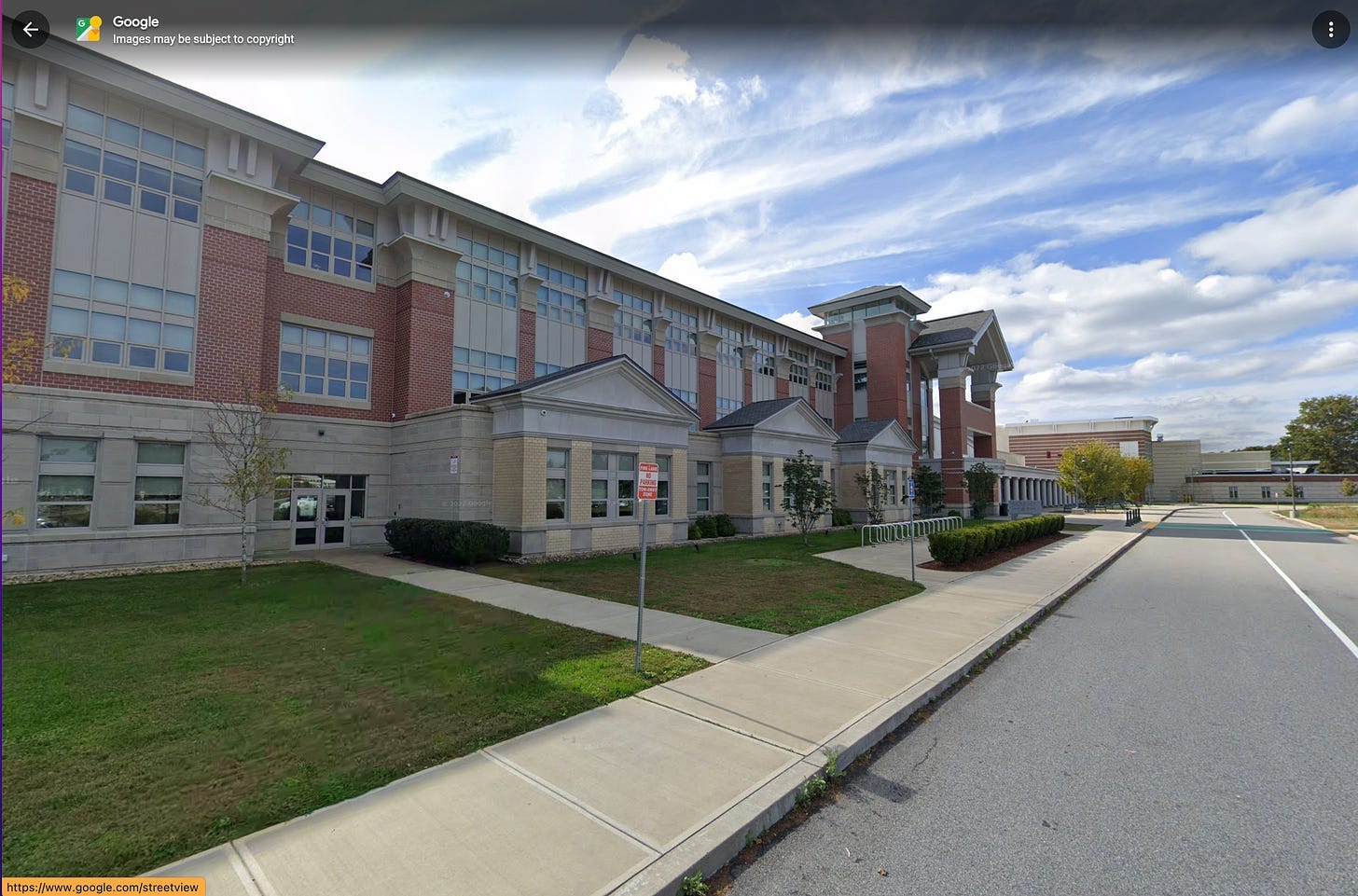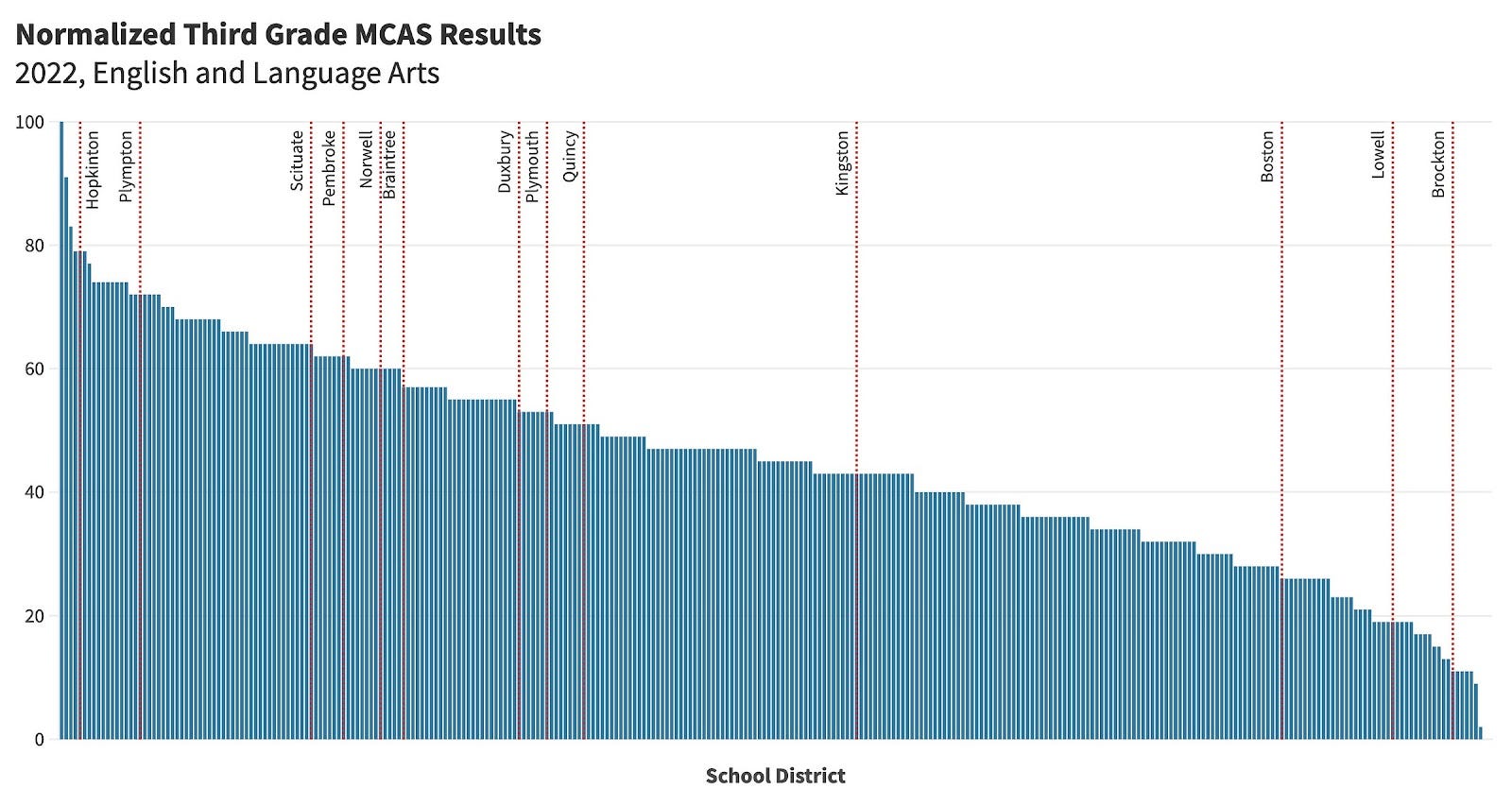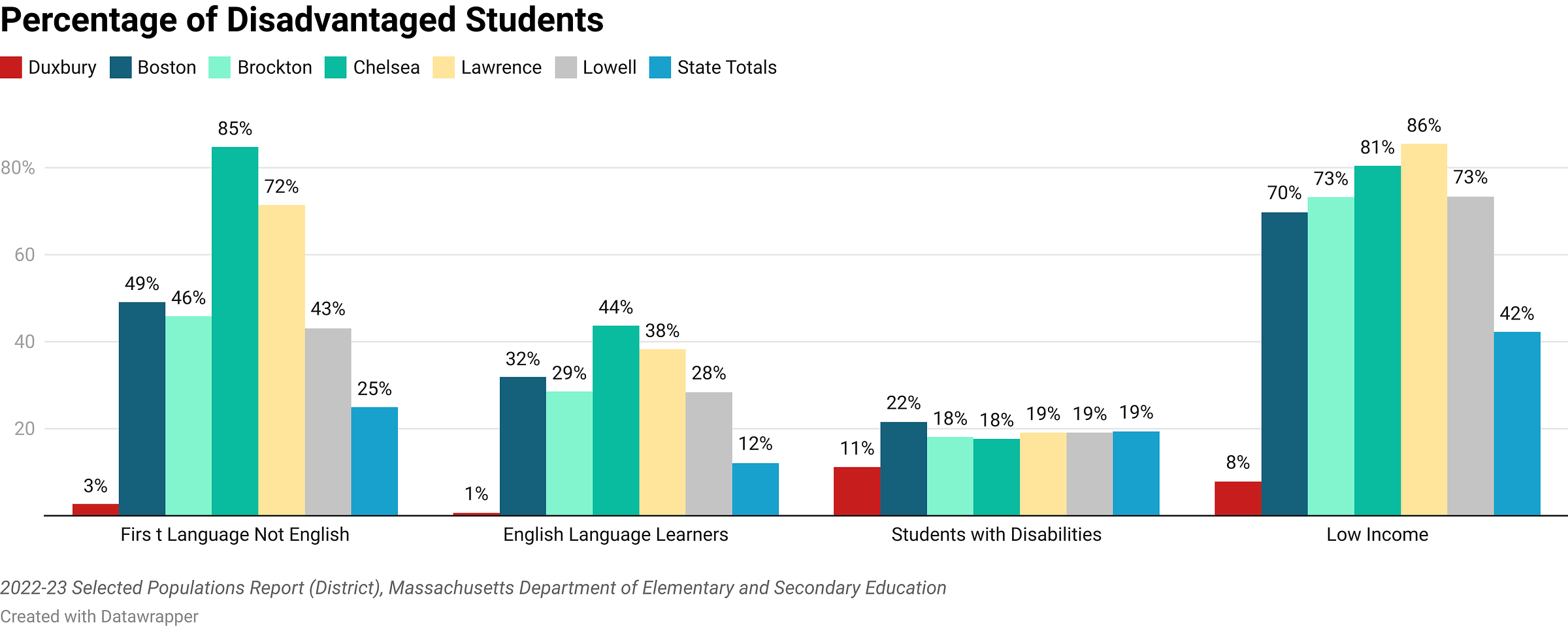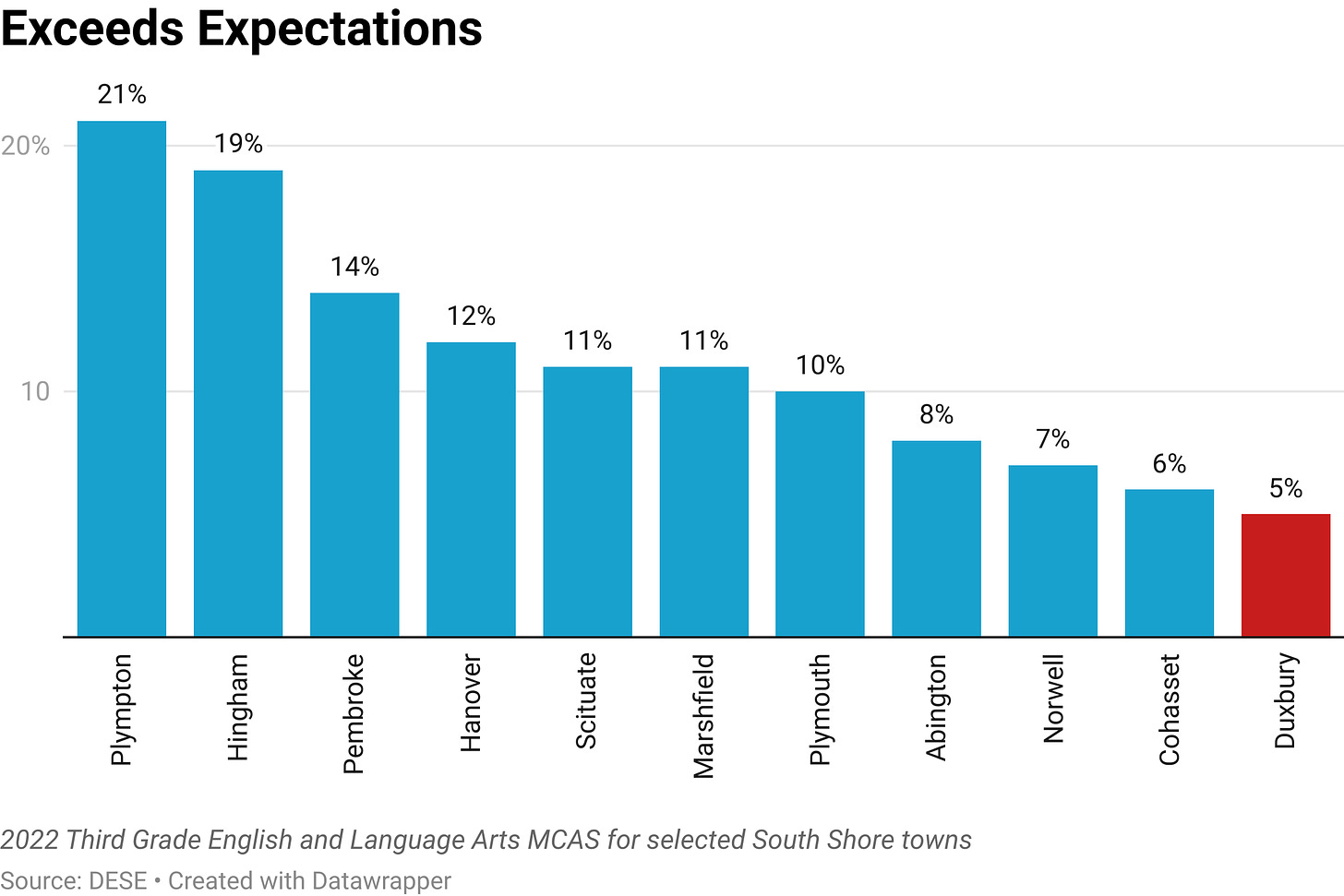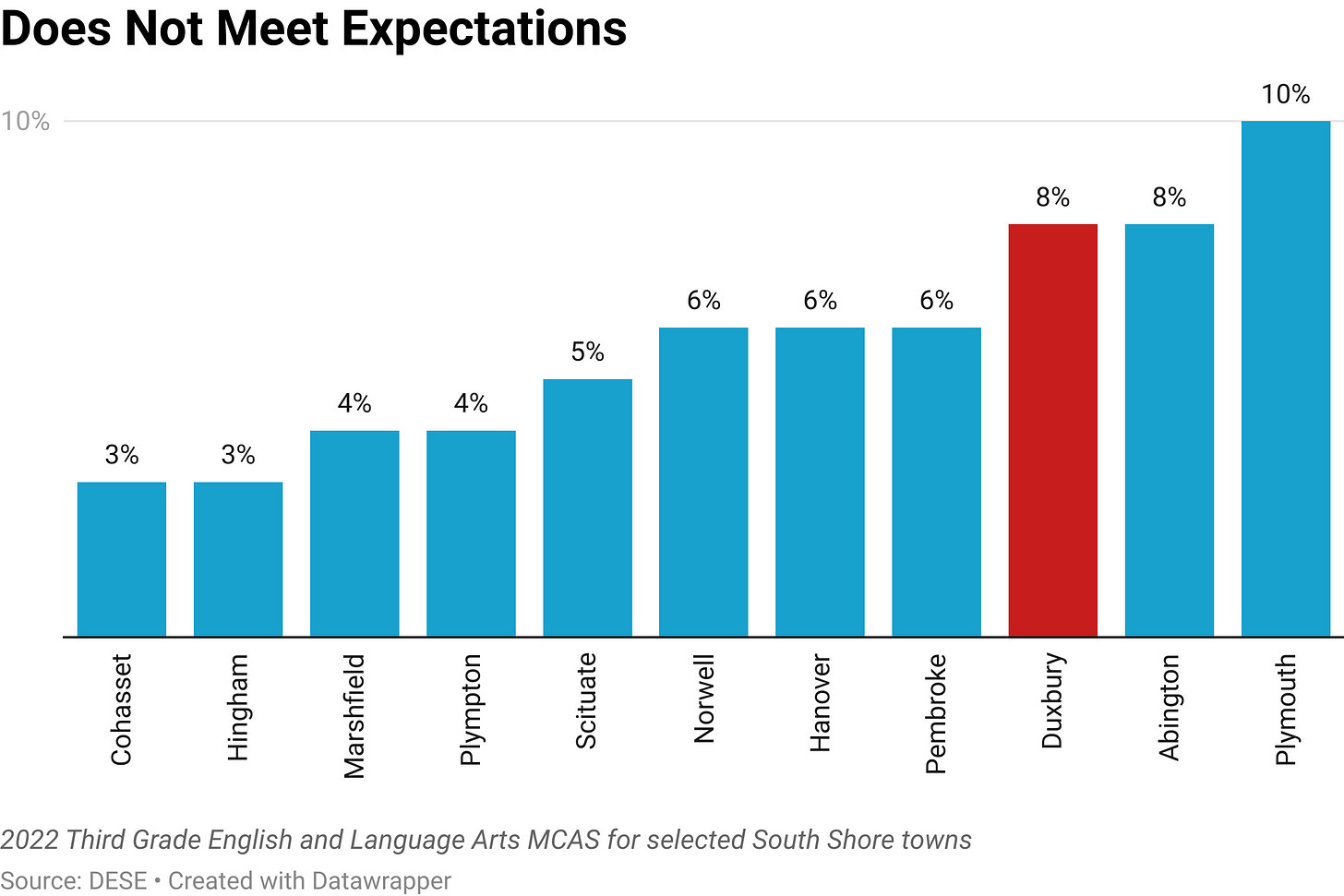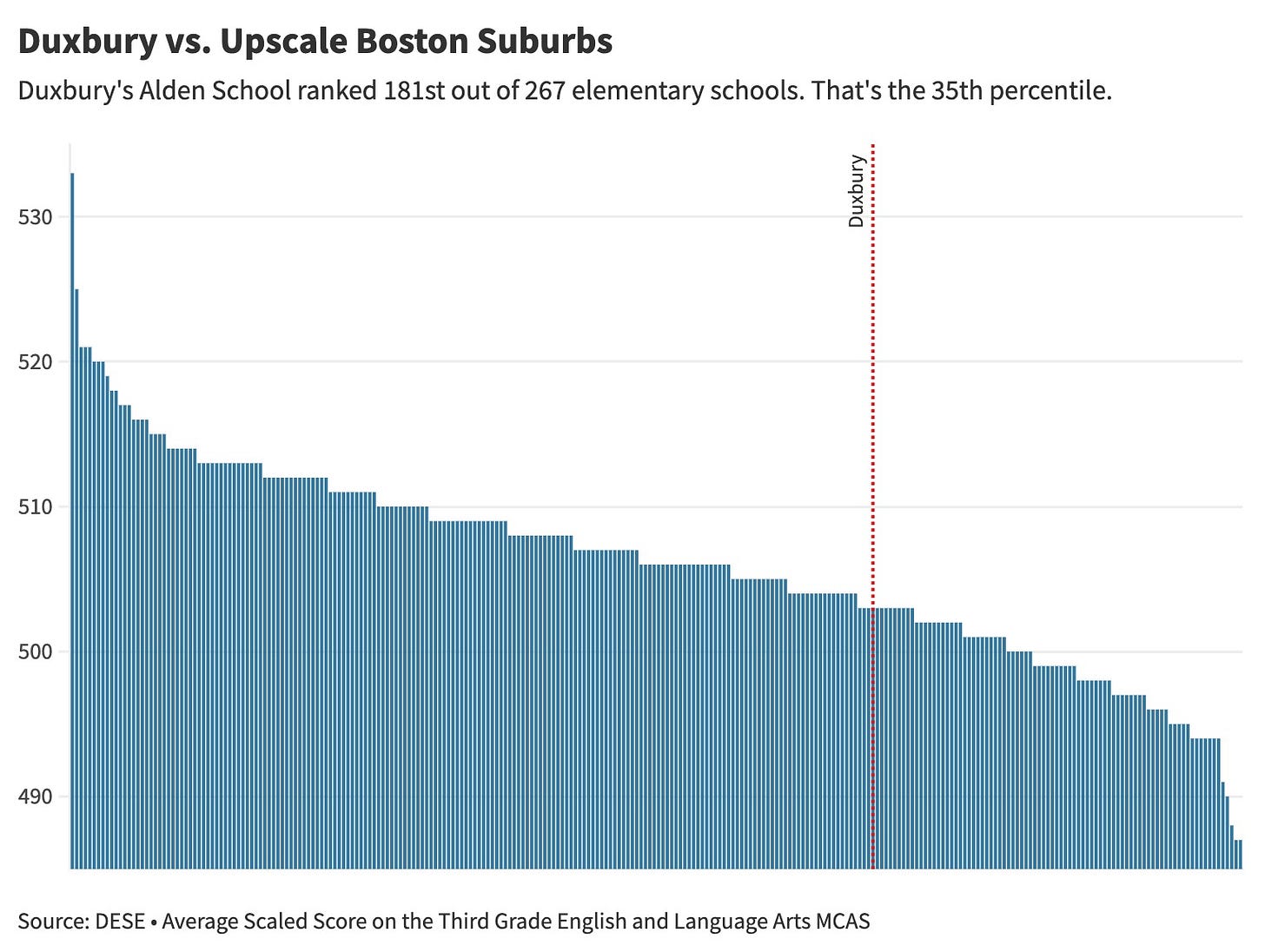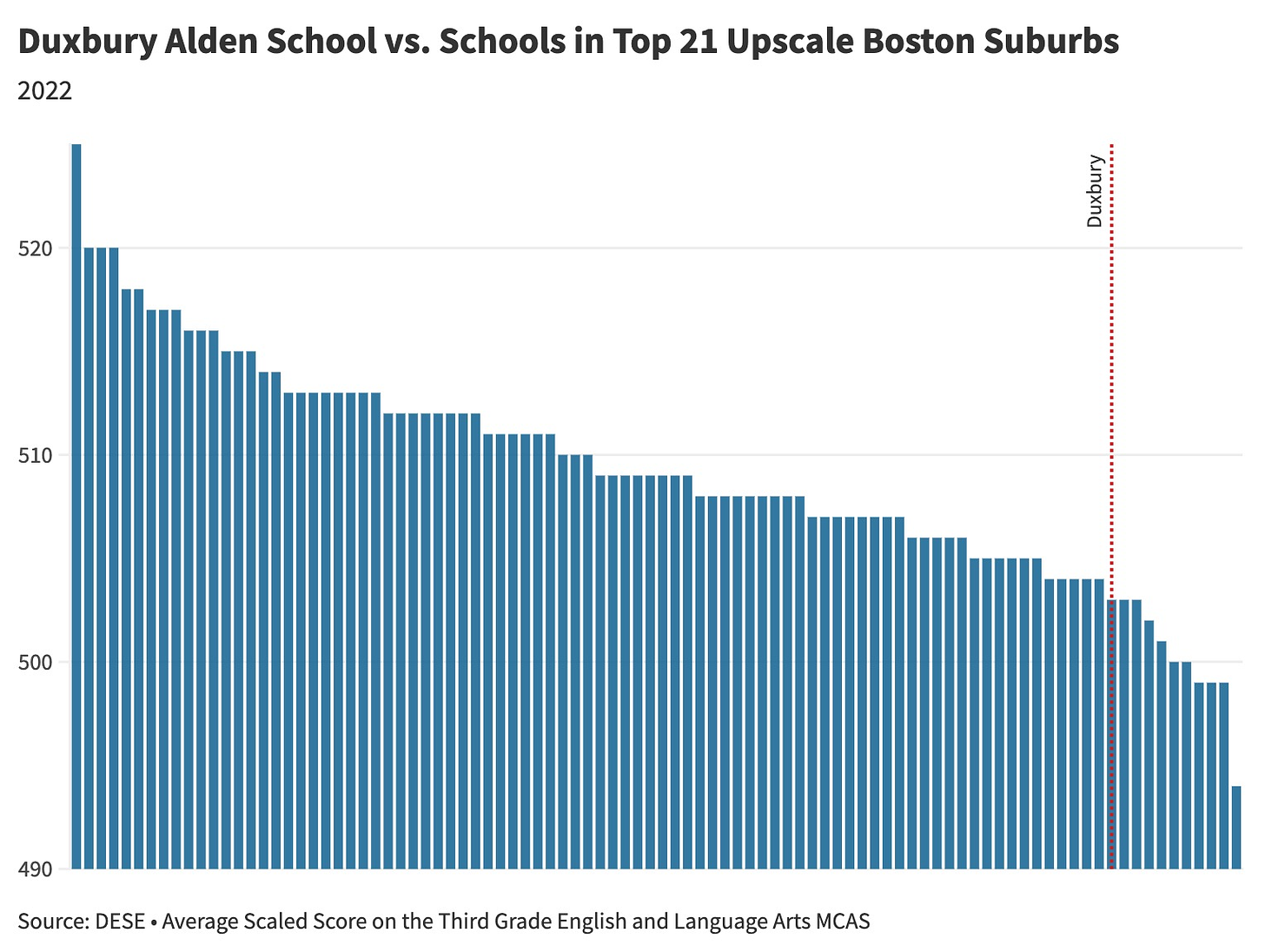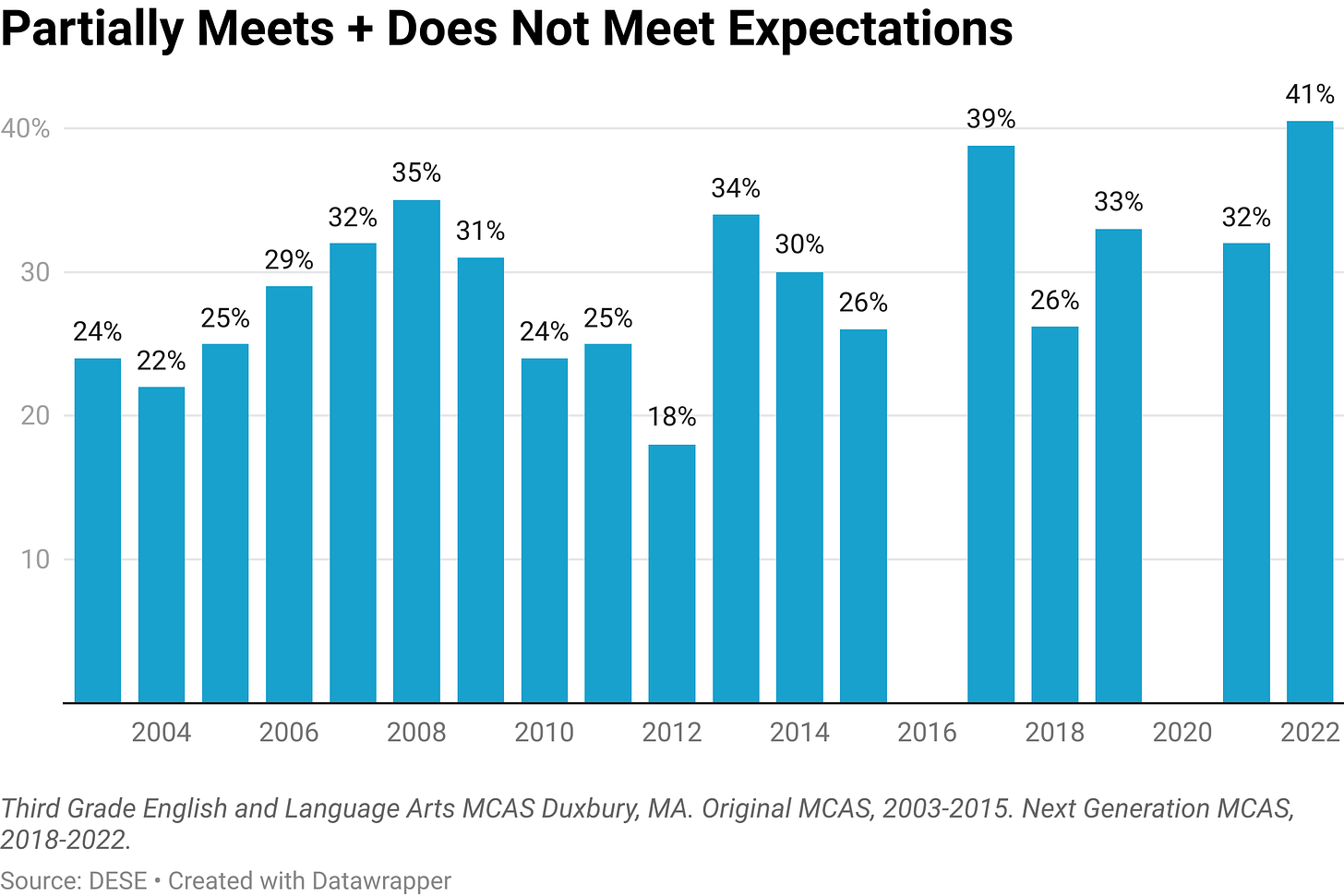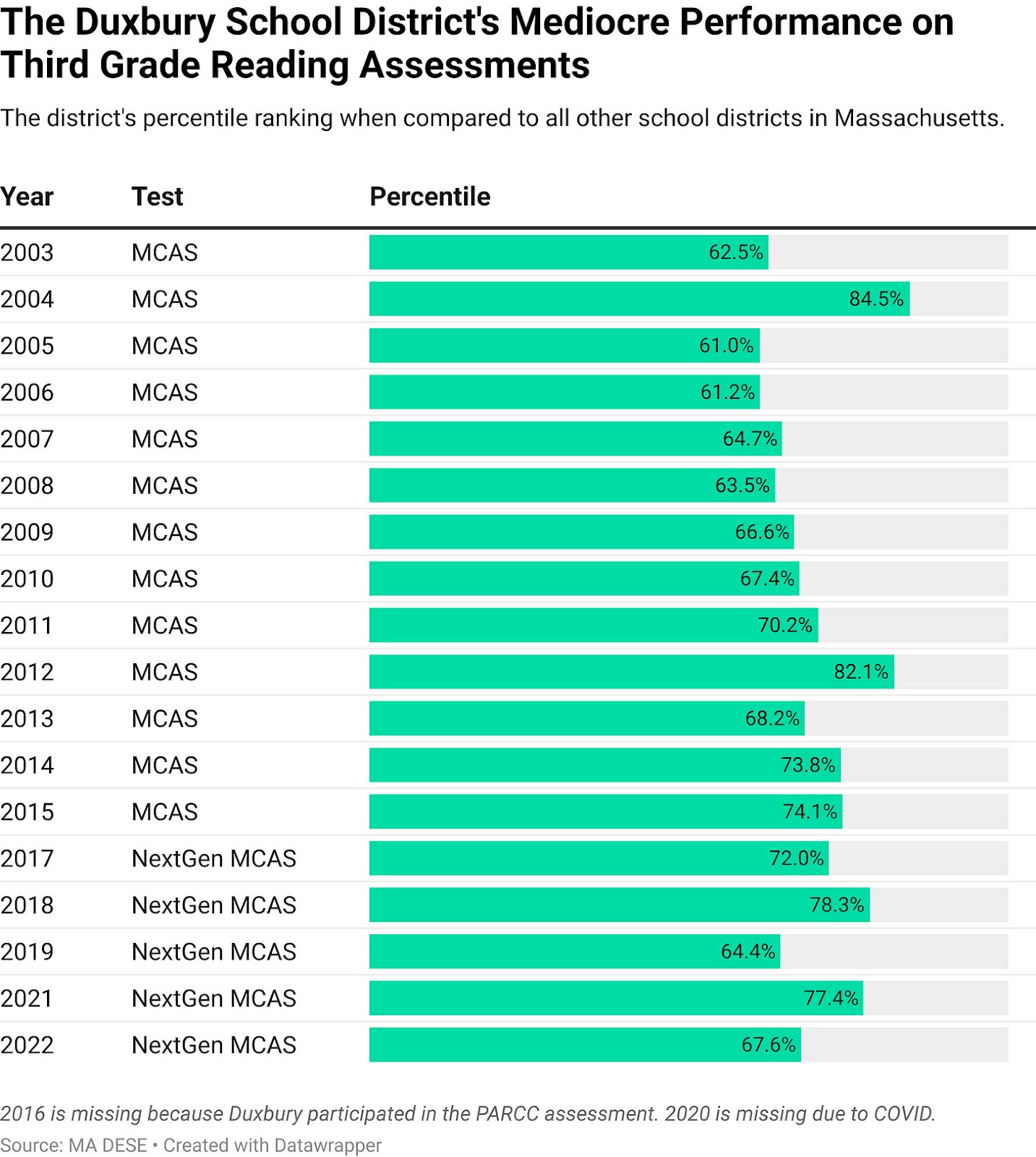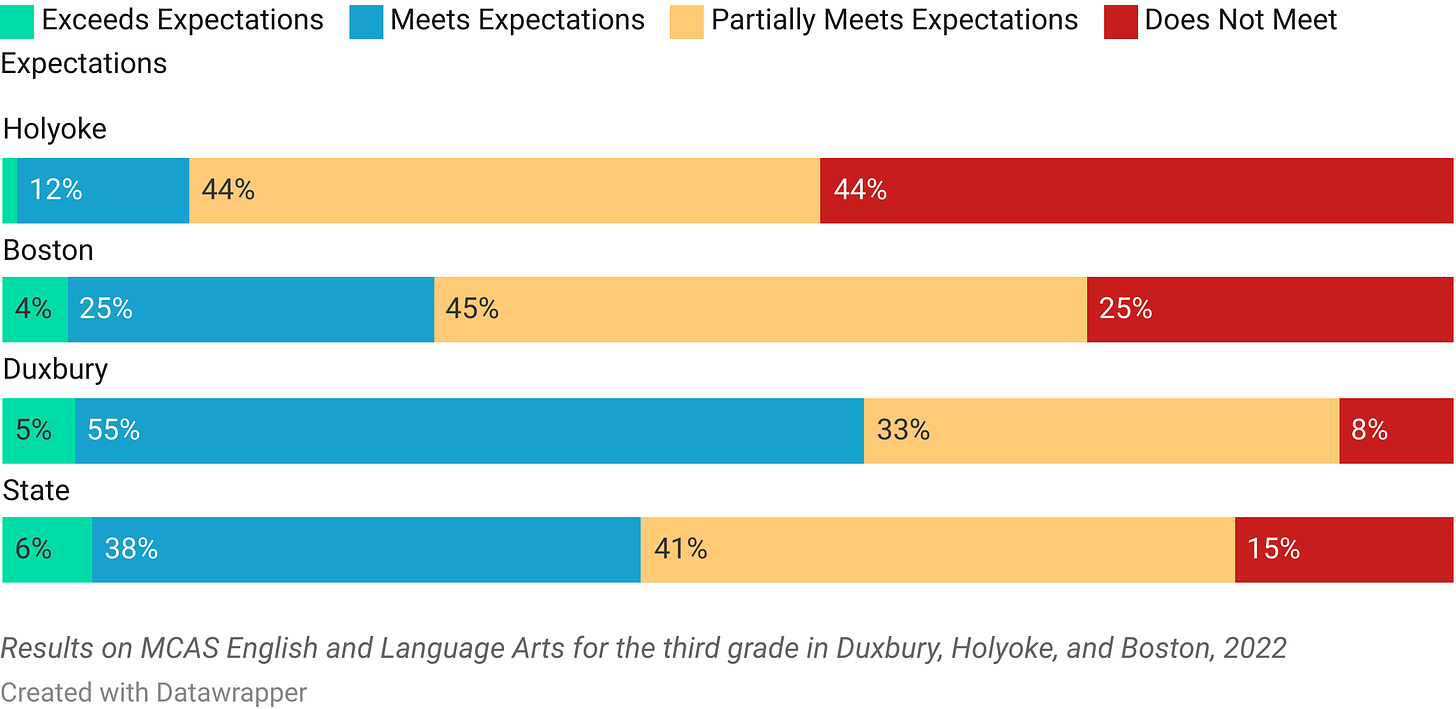Duxbury's Third Grade Reading Results Are Awful. The First of a Series.
Duxbury's elementary school reading problems aren't new and can't be blamed on COVID.
The first of a series of posts on the Duxbury School District’s performance on state learning assessments for elementary schools
Let’s say you are a young couple with two preschoolers. You live in Quincy, a small city right next to Boston. Your daughter is about to start kindergarten, and you worry that she will get lost in the shuffle as local teachers focus on students with bigger challenges: nearly half of Quincy students are low income; one in six is still learning English, and 45% don’t speak English at home.
Like many young families across the country, you decide to move to one of those leafy suburbs with great schools, spacious houses, and expansive green lawns. Duxbury, a small town on Cape Cod Bay, catches your eye. In addition to the schools, there’s a long barrier beach, a beautiful bay, historic houses, and a brand new middle school / high school.
All of that justifies the $1.45 million you plunk down for a four bedroom, three bath house, one mile from the school, two miles from the beach.
You arrive to what looks like paradise only to realize that you have made a very expensive mistake. Duxbury’s performance on the Massachusetts Comprehensive Assessment System for English and Language Arts is mediocre at best. In 2022, only 110 out of 185 Duxbury third graders met state expectations on the exam. Another 61 partially met expectations; 14 did not meet these expectations.
The data frightens you because you know that early failures in reading have such a profoundly negative impact on students’ lives.
“Research shows that children who don't learn to read by the end of third grade are likely to remain poor readers for the rest of their lives, and they're likely to fall behind in other academic areas, too. People who struggle with reading are more likely to drop out of high school, to end up in the criminal justice system, and to live in poverty..” — Emily Hanford, “Hard Words, Why Aren’t Kids Being Taught to Read?”
You wonder why you even moved. For all of Duxbury’s socioeconomic advantages, Duxbury’s reading scores are hardly better than Quincy’s. In 2022, Quincy’s average scaled score on that same reading test was 501. Duxbury’s was 502. Four Quincy schools—Berazanni (508), Merrymount (512), Squantum (515), and Wollaston (508)—scored significantly better than Duxbury.
That’s not all. Most of the surrounding towns do better on this test than Duxbury does. That includes both cushy suburbs (Hingham, Scituate, Cohasset, and Norwell) and somewhat less privileged towns (Plympton, Marshfield, Hanover, and Abington). Even neighboring Plymouth, with its low income rate of 32.5% (vs. Duxbury’s 8%), tied Duxbury on the assessment.
Yes, a few South Shore suburbs do worse—Whitman-Hanson, Hull, Weymouth, Kingston, Carver, and Rockland—but these aren’t places where families pay a million plus for a house all for the promise of a superb education. And yes, Duxbury’s scores are not as bad as those in districts with low income rates above 75% (e.g., Boston, Brockton, Lowell, Lawrence, Chelsea, etc.), but the students in those schools face myriad challenges that are virtually unheard of in Duxbury (e.g., extreme poverty, not speaking English).
Particularly troubling is Duxbury’s performance on the high and low ends of the spectrum: Too few students read exceptionally well, and too many fail to learn to read at all. In 2022, only 5% of third graders exceeded expectations while 8% did not meet expectations.
Most surrounding towns do significantly better on both counts. In Hingham, for instance, 21% of students exceeded expectations and only 3% did not meet them.
Comparisons with other upscale Boston suburbs tell an equally disturbing story. Duxbury’s 2022 third grade reading scores place Alden Elementary School 181st out of 267 elementary schools located in suburbs with family incomes of around $100,000 or more—the 35th percentile.
Among the elementary schools in the 21 wealthiest towns1 in the state in terms of family income, Duxbury's performance looks even worse.
Okay, you think. You did not do your homework when bought a house in Duxbury, but surely you can work with the local school officials to improve students’ reading scores?
Good luck with that.
Duxbury has been performing poorly on the third grade MCAS reading assessment for the past two decades. Over the last two decades, an average of 29% of third graders have failed to fully meet expectations.
What’s more, the school districts performance has consistently lagged behind what one would expect in such a prosperous district.
For the most part, however, Duxbury’s results are not bad enough to merit even state mention. In 2015 and 2016, Alden was dinged for not meeting gap narrowing goals. Usually, however, mediocre performance in wealthy suburb is a local problem. After all, from the perspective of state officials Duxbury’s 2022 MCAS reading scores don’t look as bad as the state’s worst performing district (Holyoke) or its largest city (Boston). Even better, from the perspective of state officials, Duxbury performed better than the state overall on all measures except for exceeding expectations.
All of that is small comfort to the 75 little eight and nine-year-old children who entered the fourth grade this year unable to read at grade level.
In coming posts, I will continue to explore the data surrounding Duxbury’s elementary school reading results then move onto to discuss the cause of these problems.
Includes Wellesley which was not on the list.






